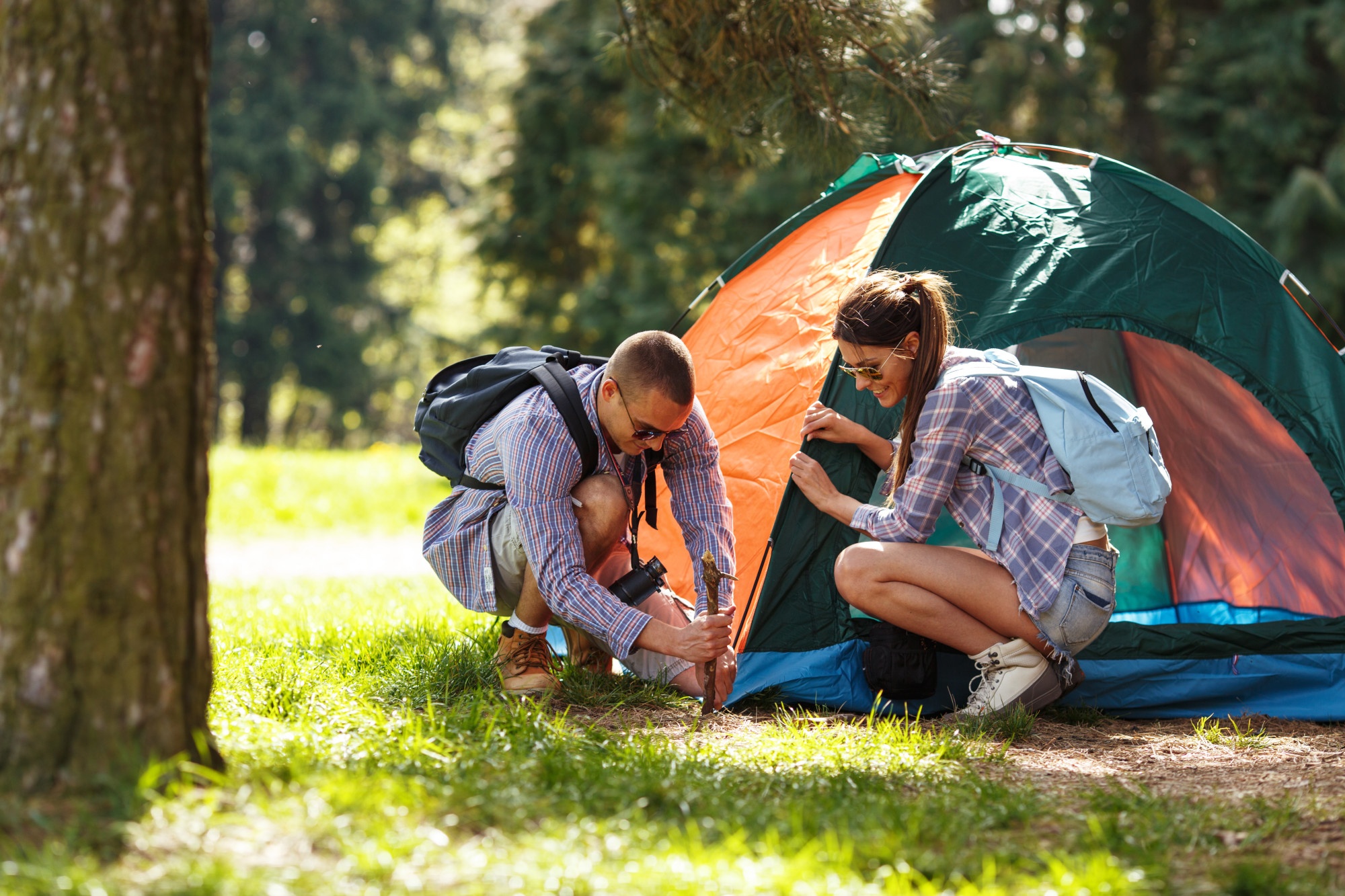You’ve always been intrigued by camping but it just hasn’t happened—yet. Now is the perfect time to start planning your very first camping trip, but where to start? For a beginner, it can seem overwhelming to get from where you are now to laying in a tent and looking through the screen skylight to the stars. We’re here to help with tips on camping for beginners to make this trip the first of many.
Camping for Beginners: Start With the Basics
The great part about camping is you don’t have to plan out every minute (unless you love that kind of thing). Once you have what you need, tent camping is a free-spirited experience.
Choose Your Location
The best time to go camping is when the weather provides comfortable temperatures. Remember, there’s no air conditioner or heater in a tent, so plan according to your preference. Most State and National Parks offer camping. Their websites will give you a list of their amenities. Most offer electricity outlets, picnic tables, water pumps, and nearby public restrooms and showers.
Gather Your Materials and Get to Know Them
Since you’ll be out in nature with no quick access to stores, it’s important you know what to bring camping.
Your local sporting goods store will have a wide selection of tents. Don’t be afraid to ask an associate to point you in the right direction. Try assembling your new tent at least once in your yard or living room before camping to familiarize yourself with it. Sleeping bags and sleeping mats or air mattresses are also a must if you want decent rest.
If you choose a campsite that doesn’t provide electricity, you’ll want to bring a generator of some kind. It’s helpful to have electricity to inflate your air mattress, charge your phone, and light your tent. If you’d like to know more about generators, here’s a good resource to find the best solar generator.
Other important camping essentials include food, plates, and silverware (disposable is easier), bug spray, a cooler filled with ice for perishable food, firewood, lighters, cooking tools and utensils, and trash bags. Maybe even bring a gold pan if you come across some paydirt.
Plan All Your Meals
There’s nothing wrong with eating at a restaurant if there’s a nearby town, but to complete your camping experience, nothing beats a meal cooked over the fire. It’s important to remember you won’t have your usual kitchen supplies at hand when camping, so planning your meals is essential.
Be Prepared for the Unexpected
Let’s be honest: part of camping is about dealing with challenges. It could be heavy rain, bugs, wet firewood, rowdy nearby campers, uneven ground to set your tent or a myriad of other things. Assess your camping environment to brainstorm possible situations, but don’t stress too much. Camping is an adventure. As long as you have the mindset that things aren’t going to go exactly as you planned, it will be a great experience.
Enjoy the Adventure!
Camping for beginners doesn’t have to be overwhelming. Now that you know how to plan your trip, it’s time to make it happen! For more camping tips, we offer a whole camping category to help you go from beginner to expert.



